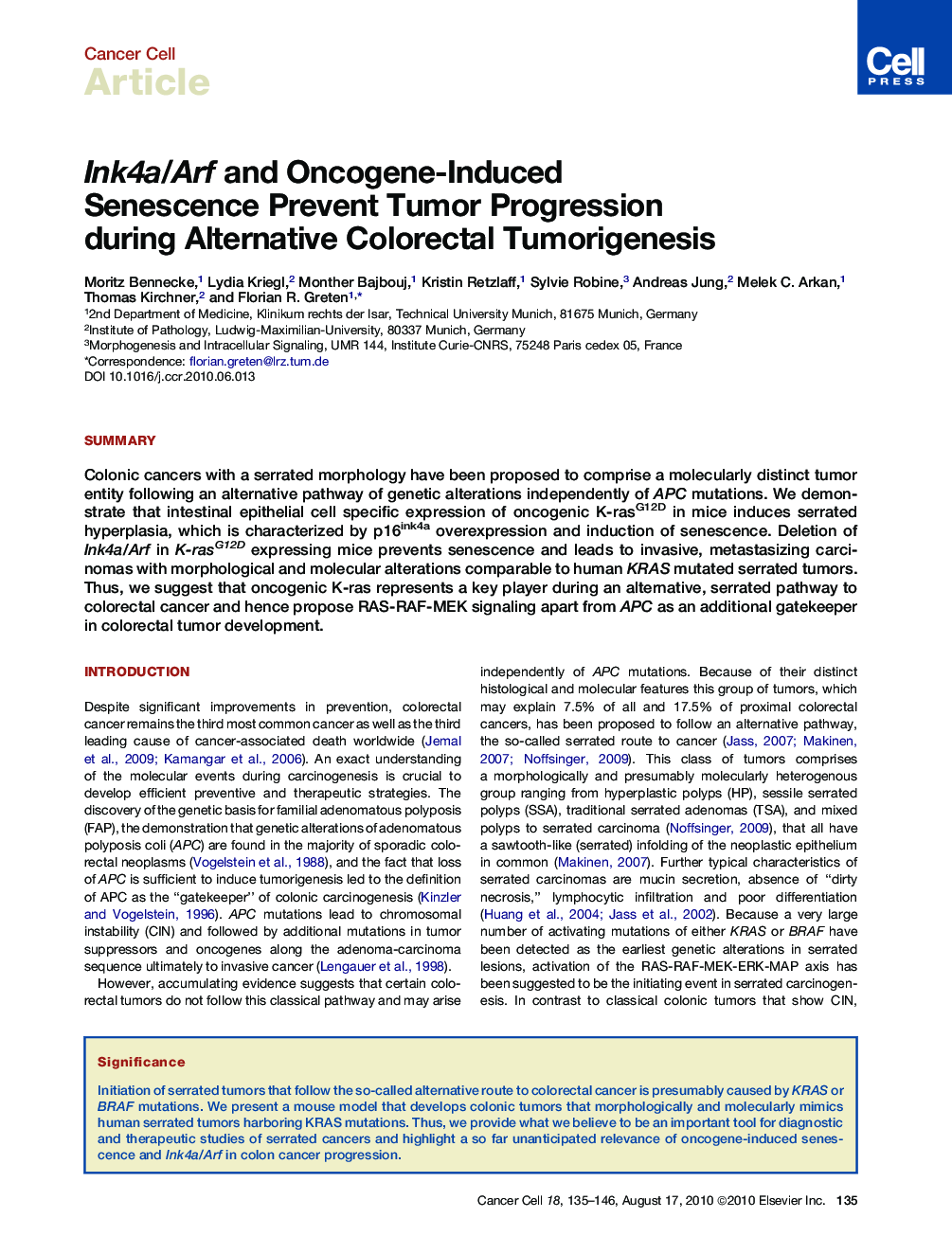| Article ID | Journal | Published Year | Pages | File Type |
|---|---|---|---|---|
| 2107523 | Cancer Cell | 2010 | 12 Pages |
SummaryColonic cancers with a serrated morphology have been proposed to comprise a molecularly distinct tumor entity following an alternative pathway of genetic alterations independently of APC mutations. We demonstrate that intestinal epithelial cell specific expression of oncogenic K-rasG12D in mice induces serrated hyperplasia, which is characterized by p16ink4a overexpression and induction of senescence. Deletion of Ink4a/Arf in K-rasG12D expressing mice prevents senescence and leads to invasive, metastasizing carcinomas with morphological and molecular alterations comparable to human KRAS mutated serrated tumors. Thus, we suggest that oncogenic K-ras represents a key player during an alternative, serrated pathway to colorectal cancer and hence propose RAS-RAF-MEK signaling apart from APC as an additional gatekeeper in colorectal tumor development.
► Expression of oncogenic K-ras in murine enterocytes leads to serrated transformation ► OIS and p16Ink4a upregulation are found in human and murine serrated polyps ► Loss of Ink4a/Arf leads to invasive, metastasizing colon cancer in mice ► p16INK4A expression is lost at the invasion front in human serrated cancer
